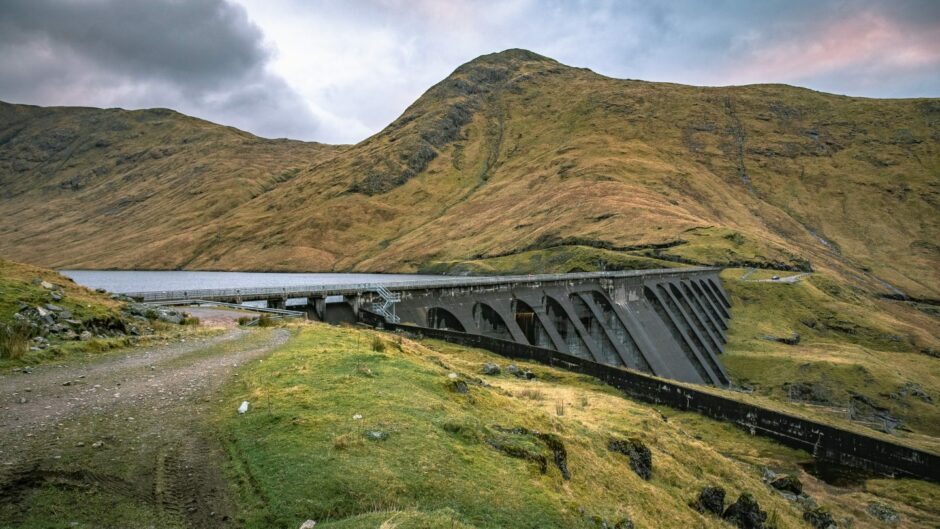
A House of Lords committee called for urgent and co-ordinated action by government to ensure the UK has sufficient long-duration energy storage to meet net zero.
A new report from the Science and Technology Committee released today says that major decisions about future energy infrastructure “must be taken and implemented urgently.”
It makes a series of recommendations including the need for a strategic storage reserve capable of generating up to 25TWh a year by 2040, and that government should set an explicit minimum capacity target for long-duration energy storage (LDES).
Chairwoman Baroness Brown noted that in light of the recent energy crisis “it is distressing to see that the Government lacks a clear plan for energy supply risks and indeed is still deliberating over investment in energy storage to prevent future crises.”
Definitions vary but the authors in this report use “medium-duration” to refer to technologies capable of storing energy between for up to 24 hours, or a few days at most. LDES concerns technologies that could store energy across periods of “multiple days, to weeks, months or even years”.
The government is already consulting on the development of a “cap and floor” scheme for LDES technologies which could support new pumped hydro projects alongside less mature technologies such as compressed air and hydrogen. The mechanism explicitly excludes lithium-ion batteries, the dominant storage technology in the market today.
The British Energy Security Strategy has already set a goal to deploy enough storage to balance the electricity system, but the committee contends that “key strategic decisions and policy action, not just ambition” are now needed to mobilise investment.
Need for strategic storage reserve
Chief amongst its recommendations is a 25TWh strategic reserve (a figure backed by the National Infrastructure Commission), potentially based on a capacity market model, which could be drawn upon outside of commercial markets.
The committee said it was “very concerned” to hear minster Graham Stuart “equivocate about whether a strategic reserve was necessary” during evidence sessions.
“Relying on the market to deliver energy security in a crisis will immediately pass on the costs of future energy shocks to the consumer in an uncontrolled way, as the UK has experienced recently. Failure to prepare a strategic reserve would jeopardise energy security and net zero,” they argued.
Relying on gas as a strategic reserve would also leave consumers “again dependent on expensive, volatile imports”. Instead it suggested that domestic renewable energy stored in forms such as hydrogen would offer more energy independence and security.
If a reserve did use gas with carbon capture, the committee said government must explain how it will maintain gas infrastructure as a backup and in a way compatible with net zero.
The report points out the impact of the loss of Centrica’s Rough gas storage facility, which closed in 2017 and was reopened in 2022 following a spike in energy prices.
Centrica has voiced plans to overhaul the facility to store hydrogen but told the committee it required more certainty over the business model.
The report recommends that government should work with Centrica to better understand the scheme, with a view to determining by the end of 2024 whether it would support the project.
Action needed ‘now’
The report follows the results of a consultation on electricity markets announced on Tuesday, in which energy secretary Claire Coutinho backed plans to use unabated gas power plants into the 2030s, despite the UK’s target for a zero-carbon grid by 2035.
Other asks included an assessment of likely minimum capacities for the various forms of storage and durations needed to balance the energy system, and for the government to publish further details on a proposed business model.
And while it welcomed a commitment to producing a Strategic Spatial Energy Plan, it warned the endeavour risked becoming “a dead letter” if the Government cannot coordinate the FSO, Ofgem, DESNZ and public and private investment to deliver a coherent plan.
Baroness Brown added: “A strategic reserve of electricity storage is a critical investment to secure the UK’s energy supply against future shocks, but the Government is still equivocating over whether it is necessary to invest in one.
“Since 2023, the Government has had a Department for Energy Security and Net Zero. Long-duration energy storage is critical for ensuring the UK can have both, so it must be a key priority for the Department.
“The Government says it wants to deploy enough storage both to balance and to decarbonise the electricity system by 2035, but we are not on track. Long-duration energy storage facilities can take 7–10 years to build, so action is needed now to ensure the private sector sees a clear case to invest and to slash planning delays and grid connection queues if we are to have the required infrastructure in place by 2035.
“Our report highlights the clear benefits of investing in long-duration storage, including energy and economic security, avoiding waste of renewable electricity, and allowing us to deploy more cheap renewable power, reducing customer bills. However, time is running out for the UK to secure that brighter future.
“The Government must take action now.”
Recommended for you

 © Supplied by Centrica
© Supplied by Centrica